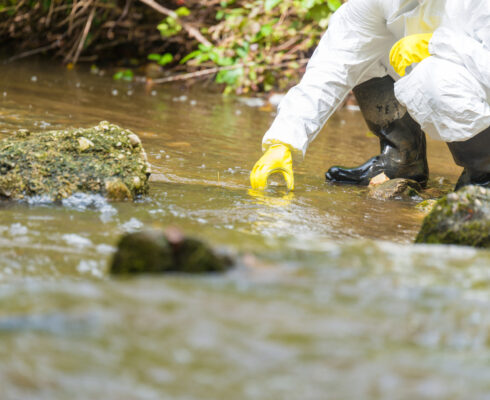 Dr. Langping Wu
Dr. Langping Wu
Specifically, her research focuses on characterizing the transformation mechanisms of organic contaminants using multi-element compound-specific isotope analysis (CSIA).
To date, she has over 25 papers published and works closely with PhD students on their projects.
In one of her recent publications, the phototransformation mechanisms of 1H-benzotriazole were characterized using CSIA. 1H-benzotriazole is part of a larger family of benzotriazoles, which are a group of nitrogen containing compounds commonly used as lubricants, polymer stabilizers, corrosion inhibitors, and anti-icing fluid components. It is frequently detected in urban runoff, wastewater, and receiving aquatic environments.
Although CSIA has been widely applied to evaluate the origin, fate, and in situ transformation pathways for common halogenated contaminants in the environment, Langping’s research has explored other innovative uses for the methodology.
It revealed that the direct and indirect photolysis of 1H-benzotriazole involved two alternative pathways. In direct photolysis of 1H-benzotriazole, significant nitrogen and carbon isotope enrichment factors indicated that an initial N-N bond cleavage was followed by a C-N bond cleavage that resulted in nitrogen elimination.
In comparison, indirect photolysis was dominated by aromatic hydroxylation associated with small carbon, moderate hydrogen, and negligible nitrogen isotope enrichment factors.
The results of this study highlighted the potential for multi element CSIA application to track 1H-benzotriazole degradation in aquatic environments and supported the increasing importance of CSIA as an emerging tool for assessing environmental impacts.
Her latest paper is about tracking the transformation of persistent organic pollutants in food webs using multi element isotope and enantiomer fractionation.
Learn more about Langping
Explore additional studies on Langping’s Google Scholar page and read her profile to see how she’s putting her academic background in action.




















